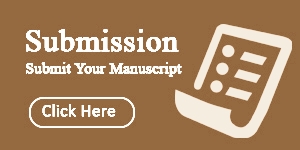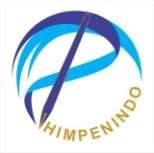Publication Ethics
Acta Solum follows closely a set of guidelines and recommendations published by Committee on Publication Ethics (COPE) (https://publicationethics.org/). All parties involved in the publishing process including editors, reviewers, authors and others are required to be familiar with them and especially to adhere to the publication ethics as described below.
Authors
Authors should present the results accurately, clearly and honestly without fabrication, inappropriate data manipulation, commercial or non-commercial conflict of interest, ensuring their actual involvement in the work and sufficient contribution to the scientific results and findings that could be corroborated or verified by others. Additionally, in research where human or animal participants or use of biological materials are involved, authors are required to provide information about ethical aspects of the research.
Regarding the submission, the manuscript must not be previously published in another journal or simultaneously submitted for publication elsewhere. It is also forbidden for authors to publish the same results in more than one journal. Authors are expected to participate in the peer-review process and respond to the requirements of the Reviewers and Editors for the corrections and improvement of the manuscript to the best of their ability.
Reviewers
The peer reviewers are expected to assist the editor and the editorial board in evaluating manuscripts based on content without any discrimination and presenting their feedback on the works in an accurate and clear manner. They must also ensure that all the information related to the manuscripts is kept confidential and must report to the Editor-in-Chief if they are aware of copyright infringement and plagiarism on the author’s side.
The reviewers should declare or notify the Editor-in-Chief and withdraw from the review process if they do not have the required subject expertise to carry out the review. In the case that they are able to assess only a part of the manuscript, they are required to outline clearly the areas for which they have the relevant expertise.
Editors
The decision to accept or reject a paper for publication is made by Editors based on the paper’s importance, originality and clarity, and the study’s validity and its relevance to the remit of the journal who will ensure the confidentiality of the information or materials submitted by the authors, the protection of peer referees’ identities, the transparency, fairness and punctuality of the peer review process, all of the information and materials will only be disclosed as appropriate to the author(s), reviewers and other editorial advisors.
Any unpublished materials disclosed in a submitted paper will not be used for other purposes without the author’s explicit written consent. Submissions made to a journal by the Editors will be handled by an alternative Editors to ensure the process remains fair and unbiased.
Publishing Ethics
Journal editors should consider issuing an expression of concern if they receive inconclusive evidence of research or publication misconduct by the authors as well as promptly respond to possible misconduct, which can range from minor to serious breaches of the publication ethics, or inappropriate behavior of any parties involved in the publishing process including authors and reviewers.
Furthermore, inaccuracies, misleading texts or wrong explanations found in the published article must be corrected promptly by the author(s).The editors are willing to publish corrections, errata, clarifications and apologies if the need for doing so arises. All complaints will as well be seriously investigated by the editor regardless of who files the complaint.
Copyright of the published article remains with the author, including without limitation, the right to publish the work in whole or in part in any form or media, now known or hereafter known, and is effective if and when the article is accepted for publication, so that both parties can be protected from the consequences of unauthorized use.
















